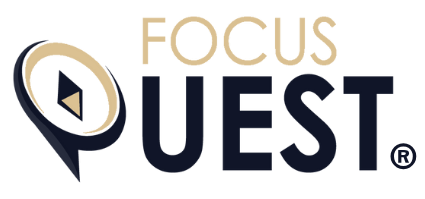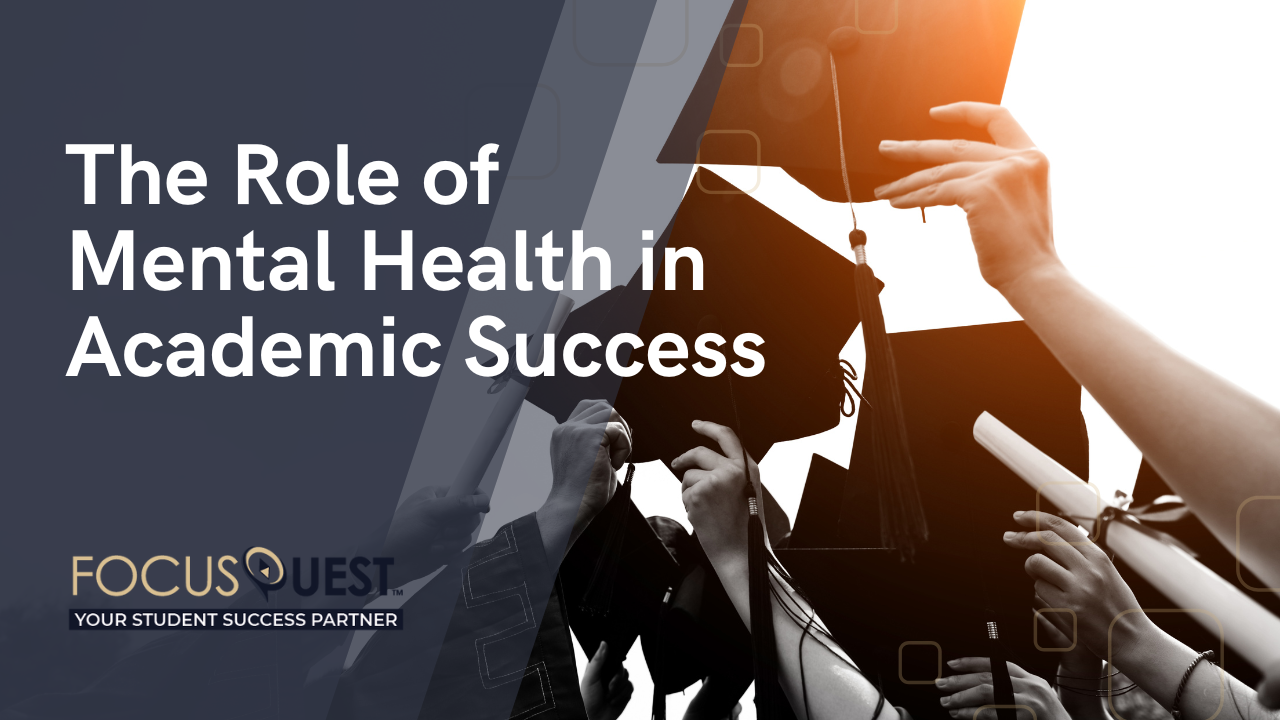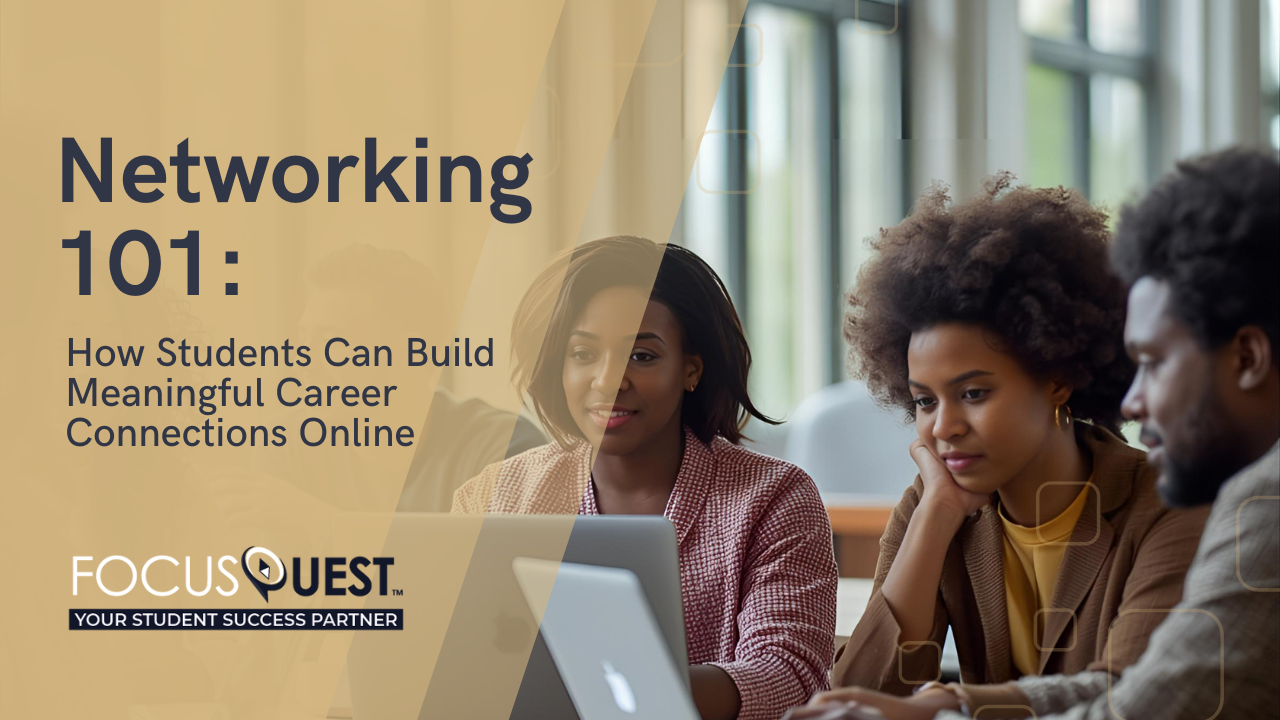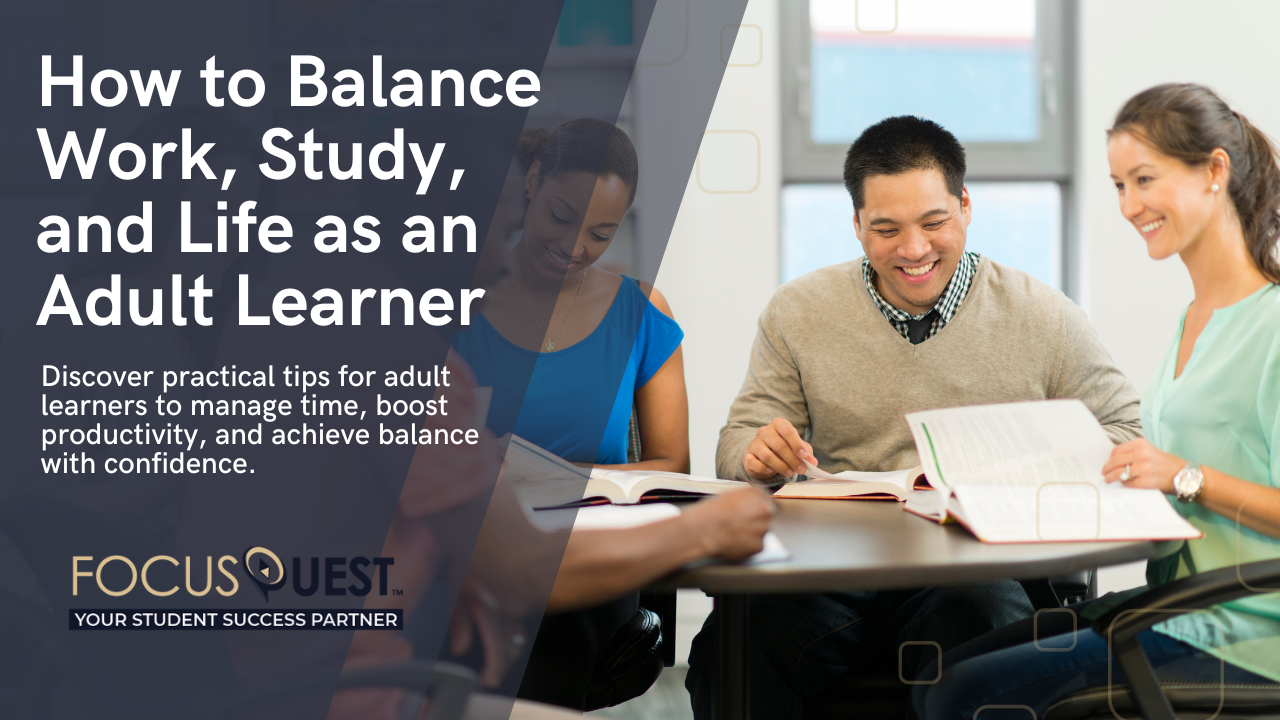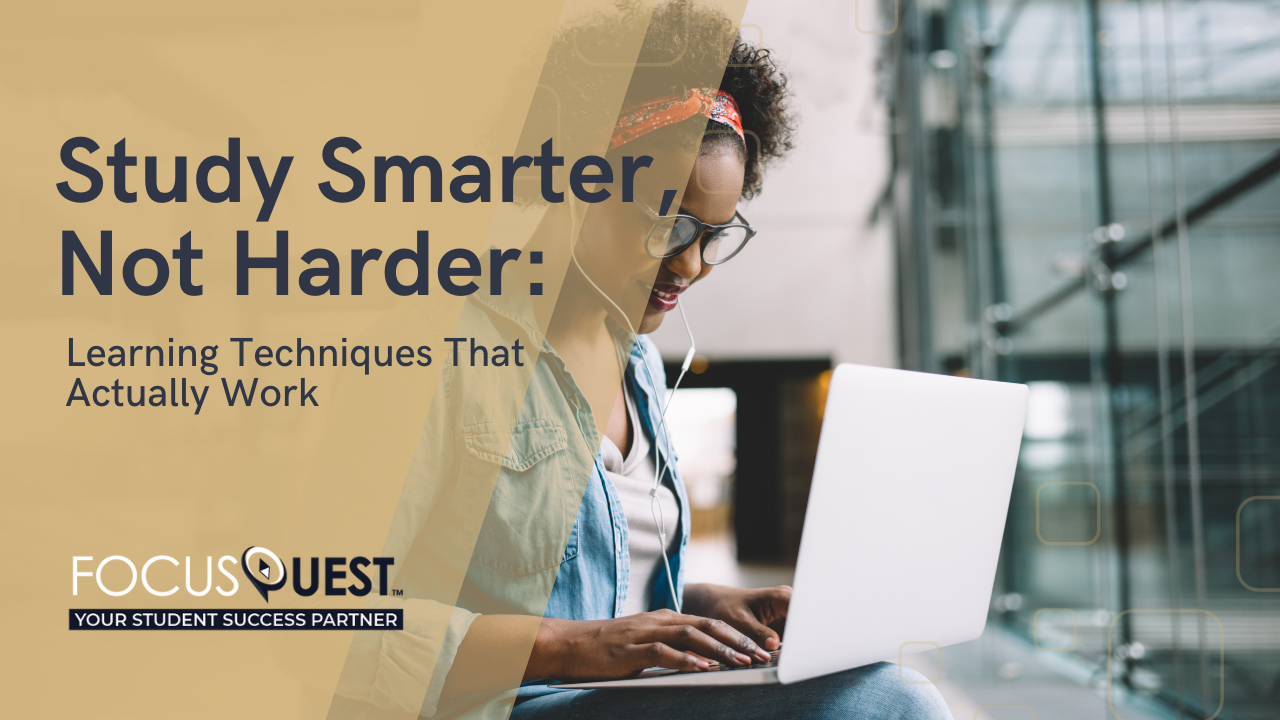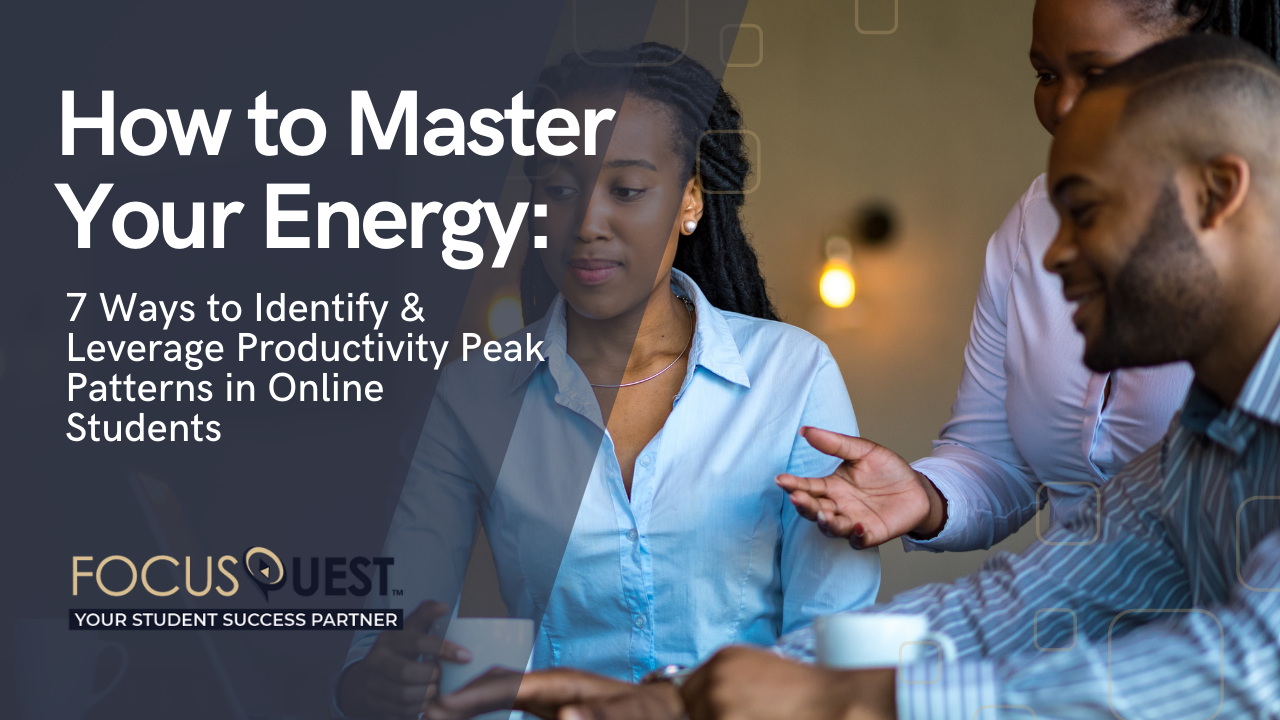Relearning How to Learn: What School Never Taught Us About Studying
- February 13, 2026
Share on Social Media
For years, students are taught what to learn, but rarely how learning actually works. Subjects change, exams come and go, but the process of learning itself is left unexplained. The result? Millions of students struggle not because they lack ability, but because they were never given the tools to understand how they learn best.
This gap quietly shapes academic confidence, motivation, and long-term success.
At FocusQuest, we believe one truth changes everything:
Learning is a skill. And skills can be learned.
The Hidden Problem No One Talks About
Most students assume that struggling means something is wrong with them. They internalize difficulty as failure instead of recognizing a missing framework.
Common beliefs students carry:
- “I’m bad at studying.”
- “Everyone else understands this faster than I do.”
- “If I were smarter, this wouldn’t be so hard.”
But these beliefs come from a system that prioritizes performance over process.
School rewards results, not understanding. It measures output, not learning awareness. And that leaves students without a map when things get hard.
Learning Was Treated Like a Talent, Not a Skill
From an early age, students are labeled:
- “Good at school”
- “Not academic”
- “Naturally smart”
- “Needs improvement”
What’s rarely explained is that learning itself is trainable. No one teaches students:
- How attention works
- How confusion is part of learning
- How effort and effectiveness are not the same
- How emotions influence comprehension and memory
So students default to copying behaviors that look productive, long hours, over-highlighting, constant pressure, without understanding whether they actually help.
Why “Trying Harder” Stops Working
When students don’t know how learning works, their only strategy is effort escalation:
- More hours
- Less sleep
- More pressure
- Less compassion
Over time, this leads to exhaustion, anxiety, and burnout; not mastery.
Learning isn’t linear. Struggle doesn’t mean failure; it often means growth. But without that context, difficulty feels personal instead of instructional.
Relearning How to Learn Starts With Awareness
Before changing study habits, students need to rebuild their relationship with learning itself.
That starts by asking different questions:
- Do I understand this, or just recognize it?
- What part is unclear, and why?
- What environment helps me focus best?
- What happens when I feel stuck or overwhelmed?
This awareness, often called learning self-regulation, is the foundation that schools rarely teach but students desperately need.
The Emotional Side of Learning (That Gets Ignored)
Learning doesn’t happen in a vacuum. Stress, fear of failure, comparison, and pressure all affect how the brain processes information.
When students feel:
- Constant evaluation
- Time pressure
- Lack of safety to make mistakes
Their ability to learn effectively decreases.
Relearning how to learn means recognizing that emotional safety and clarity are not extras; they’re requirements.
From “I’m Bad at School” to “I Need a Better System”
One of the most powerful shifts a student can make is this:
The problem isn’t me. The problem is that I was never taught how learning works.
That reframing restores agency.
It turns shame into curiosity.
And it opens the door to sustainable progress.
Students who learn how they learn:
- Recover faster from setbacks
- Stay consistent without burning out
- Build confidence through understanding, not pressure
- Adapt across subjects and life stages
Learning Is a Lifelong Skill. Not a School Subject
Education doesn’t end with a diploma. The ability to learn effectively shapes how people:
- Adapt to new challenges
- Process information
- Build confidence over time
- Stay curious instead of overwhelmed
When students understand learning as a skill, education becomes something they participate in, not something that happens to them.
A More Human Model of Education
The future of education isn’t about forcing students to work harder.
It’s about helping them work with their minds, not against them.
That means:
- Teaching learning awareness
- Normalizing confusion as part of growth
- Supporting emotional well-being alongside academics
- Designing systems that adapt to students, not the reverse
This is the philosophy behind FocusQuest: learning that respects how humans actually think, feel, and grow.
Frequently Asked Questions (FAQs)
What does “relearning how to learn” mean?
It means developing awareness of how your mind processes information, responds to stress, and builds understanding; so learning becomes intentional, not accidental.
Why wasn’t this taught in school?
Traditional education prioritizes content coverage and standardized outcomes, often leaving little room to teach learning processes and self-regulation skills.
Is struggling a sign that I’m bad at learning?
No. Struggle is often a sign that learning is happening, especially when students are working beyond memorization.
Can learning skills be developed at any age?
Absolutely. Learning strategies and awareness improve at any stage of life, including for adult and returning students.
How does mindset affect learning?
Beliefs about intelligence and ability directly influence motivation, persistence, and resilience during challenges.
Learning doesn’t need to feel like a constant battle. When students understand how learning works, and how they work, education becomes clearer, calmer, and far more sustainable.
FocusQuest exists to help students rebuild that foundation, so learning finally makes sense.
facts corner
Featured Articles
-
The Divine Nine: History of Black Sororities and Fraternities
-
James M. Jeter '13 Makes History as Ralph Lauren’s First Black Creative Director
-
The Surge in HBCU Enrollments: Why More Students Are Choosing HBCUs
-
Relearning How to Learn: What School Never Taught Us About Studying
-
The Role of Mental Health in Academic Success
-
The Power of Peer Support: Finding Your Study Tribe
